

Click on a button to jump to our webinars, courses, books or blog posts about children aged 11-19 yrs

Teenagers are different. Puberty arrives, and everything starts to change. It’s not just about hormones and bodily changes, it’s about how their brains work. Neuroscientists now know that adolescence is a time of rapid neurological change. Teenagers start to think and react differently to younger children, and it can be really confusing for their parents. Things which used to work don’t help anymore. It’s a time of high emotions and big reactions.
Adolescence is a time of great opportunity but also vulnerability. Our teens need to look outwards and to seek new challenges and they also need us to be a safety net. They may push parents away whilst also needing to keep them close. It can be a time when some become very anxious or depressed, whilst others become burnt out and stop coming out of their bedrooms.
In my courses and webinars for this group, I talk about the changes which go on during adolescence and how parents can help their children to navigate the uncertainty and turbulence of these years.

Life is full of transitions - and many autistic children find them really difficult. Why is this, and how can parents help?

Why are so many autistic teenagers anxious - and what can parents do to help? Gain understanding, insight and practical tips.

What is demand avoidance? Dr Naomi Fisher will explain the psychology of demand avoidance and what parents can do to help.

Does your child's behaviour confuse you? Does most of the parenting advice you are given make things worse? Do you feel like you are walking on eggshells? In this course, Dr Naomi Fisher will explain the psychology of demand avoidance. What is it, how does it affect the nervous system - and importantly, what can parents do? You'll end with a clearer idea of what is going wrong and some ideas as to how to help.

What happens when demand avoidance meets adolescence? In this mini-course, Naomi will explain what’s going on in your adolescent’s brain, and how that interacts with demand avoidance. She’ll help you understand what is going on for your child, and give you some practical ideas as to how to help your young person (and yourself) get through these important years. This course is suitable for teenagers with and without a diagnosis.

Demand avoidant children have an anxiety-driven need to resist the demands of every day life. In practice this can mean that they say No a lot. They may refuse all suggestion, or refuse to go out. This can make life really challenging for families. Lots of families get stuck, unable to change things which really need to be done differently, becuase their child responds so intensely. Naomi explains why demand avoidant children find change so hard, and will give you the tools to help them manage necessary changes. You'll end the course with a better understanding of your child and what they find challenging, and some ideas to help them.
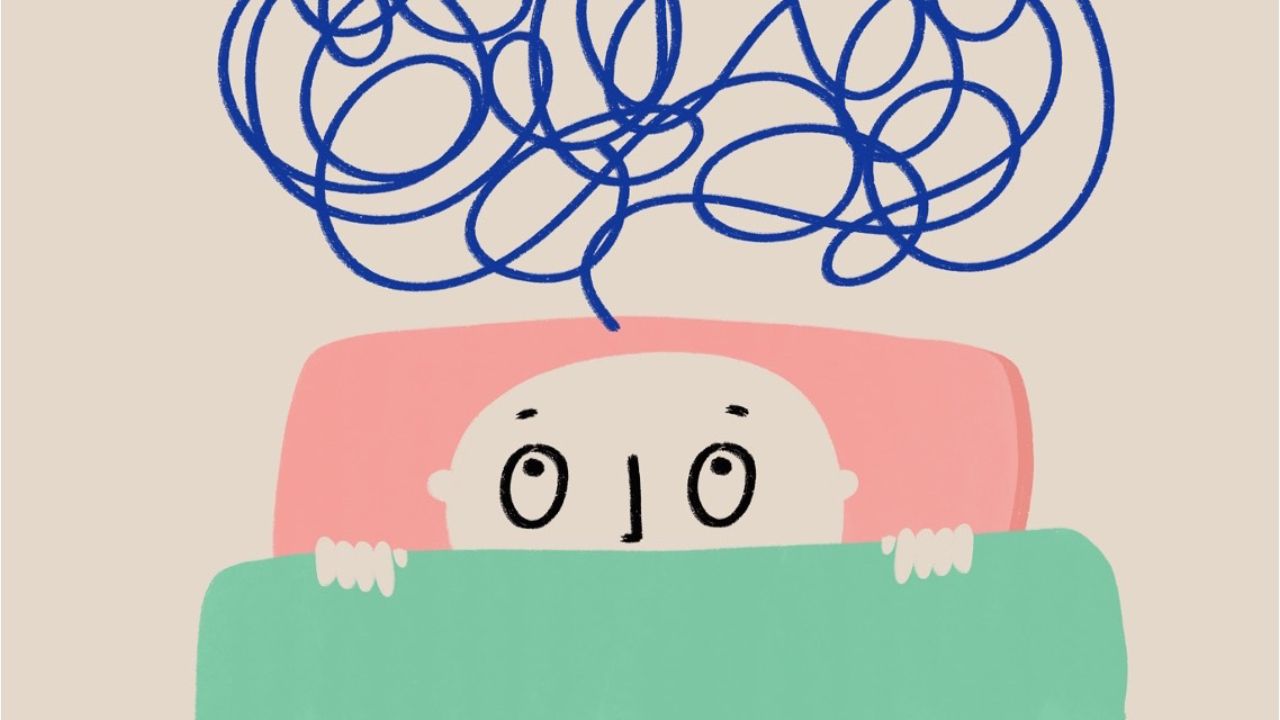
Many teenagers are anxious, and their parents don't know how to help. Worries about school, worries about friends, anxiety which just seems overwhelming - what's going on? Naomi will explain how anxiety works and how brains change in adolescence. She'll go on to explain why adolescents are often anxious - and give parents some ideas as to how to help their teen.

Some children and young people seem to withdraw from life. Their anxiety becomes so severe that anything which might have helped seemed to make things worse. They may find it hard to come out of the bedrooms or to leave the house. Parents are left not knowing what to do next. Naomi will help you to think about severe anxiety through the lens of the nervous system and give you some practical ideas to help your child.
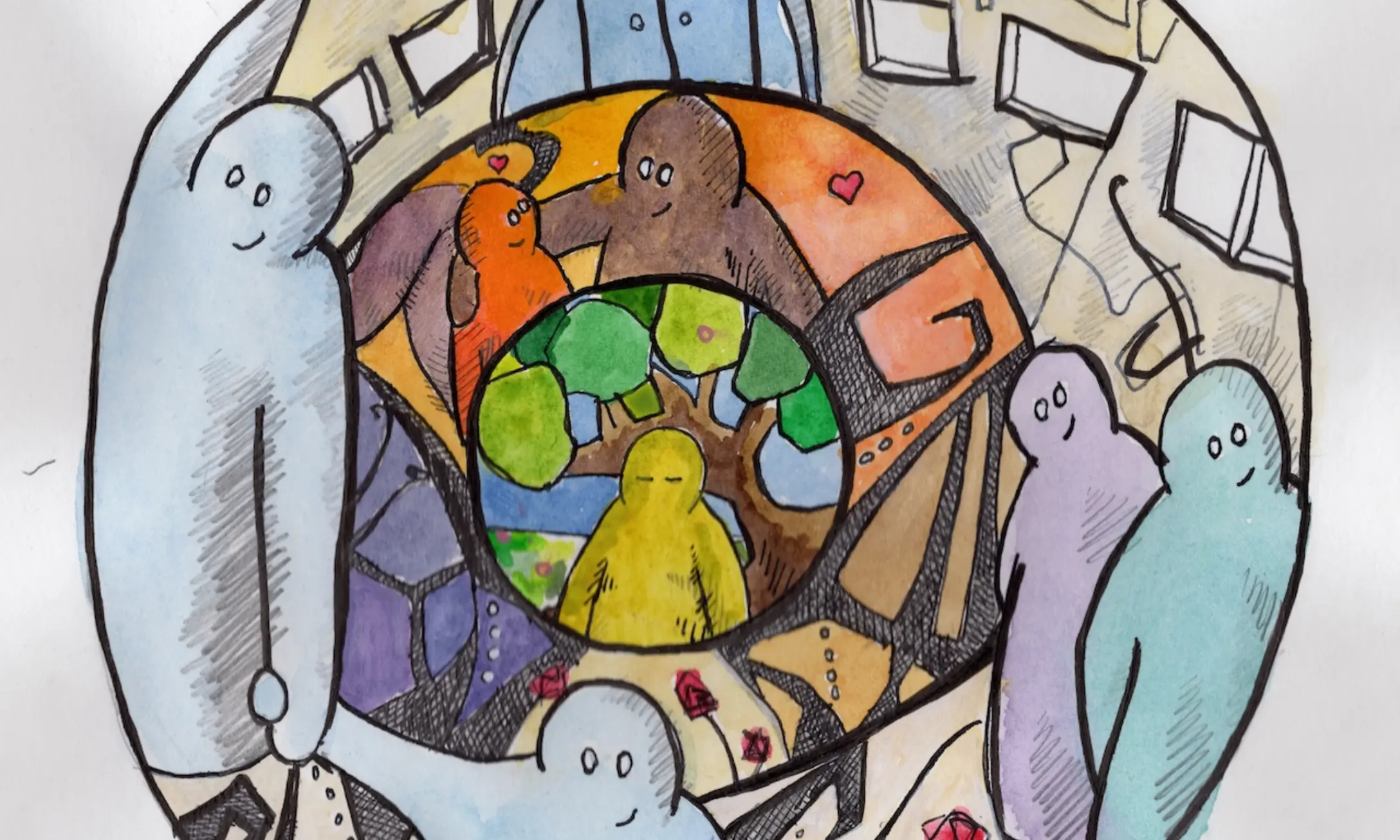
Dr Naomi Fisher, clinical psychologist, will share with you how trauma and loss affect children and what their parents can do to help. With various handouts to download and extra audios, this course is a comprehensive and practical resource to help you support your child.

An increasing number of parents are saying that their children have 'lost their spark' and don't enjoy things in the way that they used to. They are exhausted and lacking in energy. Some of them become completely unable to attend school and stop doing things they used to be able to do. In this new course, Naomi discusses burnout in children and what can parents do about it. She'll describe the factors which contribute to burnout and how parents can prevent it. She'll then move on to talking about children who are already burnt out and will give some tips for helping them to move towards recovery.

Parenting is hard work. You spend your time fighting the system for what they need and the demands can be relentless. There's never time to stop and reflect before the next crisis begin. You're burnt out by the demands, and the thing is, you can't take a break from parenting. There's no option of taking some time off to recover. You can't renegotiate your hours. In this new course, Naomi talks about what parenting burn out is, whether you might have it and how you can start to recover, whilst continuing to meet the needs of your children. It will give you some ideas as to how to start to turn things around.

This mini-course for teenagers to watch by themselves is about what anxiety is like for teenagers, and how sometimes the things we do to try and make anxiety better, end up making it worse. It has some clips from Jenna, who is 18 and who has lots of experience of anxiety. She’ll tell you about what helped her and how she’s manages to live the life that she wants to live.

This mini-course is for teenagers to watch themselves. It explains burnout, why our bodies go into burnout, what that process looks like and how we can recover. It is broken down into small sections and has subtitles. Featuring Chloe from Me Just Me.
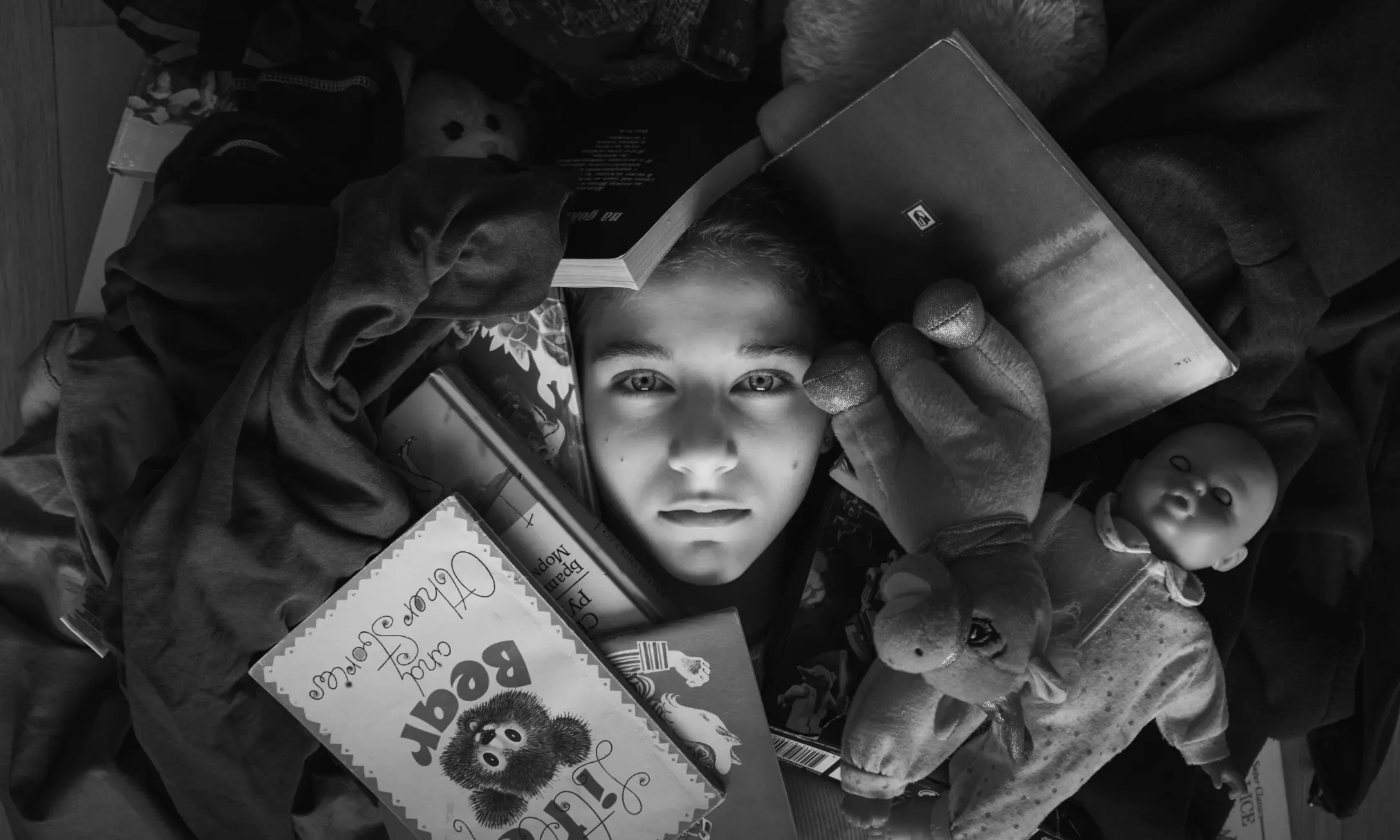
This mini-course is for teenagers to watch themselves. It explains why sometimes, everything feels like pressure and the more others try to help you, the harder it is to do anything, even things you’d like to do. It helps teens think about how to build a life which works for them. It’s suitable for anyone who experiences demand avoidance, whether or not they have a diagnosis.

This mini-course is for teenagers to watch themselves. When teenagers stop going to school, it can be hard to know what happens next. They’ve spent years being told that school is essential for their future, and they have no idea how to start learning without a teacher and a classroom. They feel hopeless – how can they have a future, if they don’t go to school? Featuring clips of a teenager who themselves stopped going to school in Year 9 and in a conversational and down-to-earth style, your teenager will see that they are not alone. It’s possible to learn outside school, and there are many others who have paved the way.

You might be just starting to wonder if your child might be autistic, or you might be post-diagnosis and trying to make sense of it all. You might have gone through the assessment process with your child and not got a diagnosis, and be trying to work out what that means. In this new course, Naomi will talk about what autism is, and the different ways in which it is now being understood. She'll introduce different theories of autism and touch on the controversies.

Why are so many autistic teenagers anxious - and what can parents do to help? Gain understanding, insight and practical tips in this mini-course by Dr Naomi Fisher.

Many autistic children express anger in ways which surprise their parents. It's so loud, so out-of-nowhere, so extreme. Parents say it can feel like they are walking on egg shells, never sure what might set their children off. They worry that perhaps their children are terribly unhappy and it's all coming out in anger - is it something they've done wrong? Naomi Fisher, clinical psychologist will talk about why autistic children often have outbursts of anger (both external and internal), how it builds up and how to help them. She'll give you some practical tips and strategies to help your child and your family.

Life is full of transitions - and many autistic children find them really difficult - which means that their parents find them hard too. Life can feel like walking on eggshells. Dr. Naomi Fisher will help you gain a new understanding of why transitions are so hard, what makes it worse - and how to help.

Dr Naomi Fisher will explain OCD (obsessive-compulsive disorder) and how it can interact with autism. She'll describe how parents and children can fall into OCD traps, and what to do to get out. She'll give you some ideas to help your child, even if they themselves don't think that there's a problem.

Your child isn’t happy at school. They are protesting in the mornings, or having meltdowns in the afternoons. They tell you that they don’t want to go, and you feel torn between them and the school. School are telling you that the answer is to keep pushing, as you don’t want to reinforce avoidance or behaviour. It’s starting to dominate everything about your family life, and it doesn’t seem to be getting any better.

Things have gone wrong at school for your teenager, and now it’s like they have nothing left. They have lost their sense of what made life worth living. You don’t know how to help, and sometimes it seems like whatever you do makes things worse. Naomi will explain how burnout happens and what the process of recovery looks like.

Is your autistic child having problems at school? Naomi offers ways to think about the issues, and tools and strategies which will help you make changes for your child.

In this mini course Naomi will talk about school trauma, how it occurs, what makes it worse and how parents can help. You'll leave with a new understanding of what has gone on for your child, why they are still affected by the past, and some ideas of what to do. This course will combine psychological theory with practical strategies and ideas.
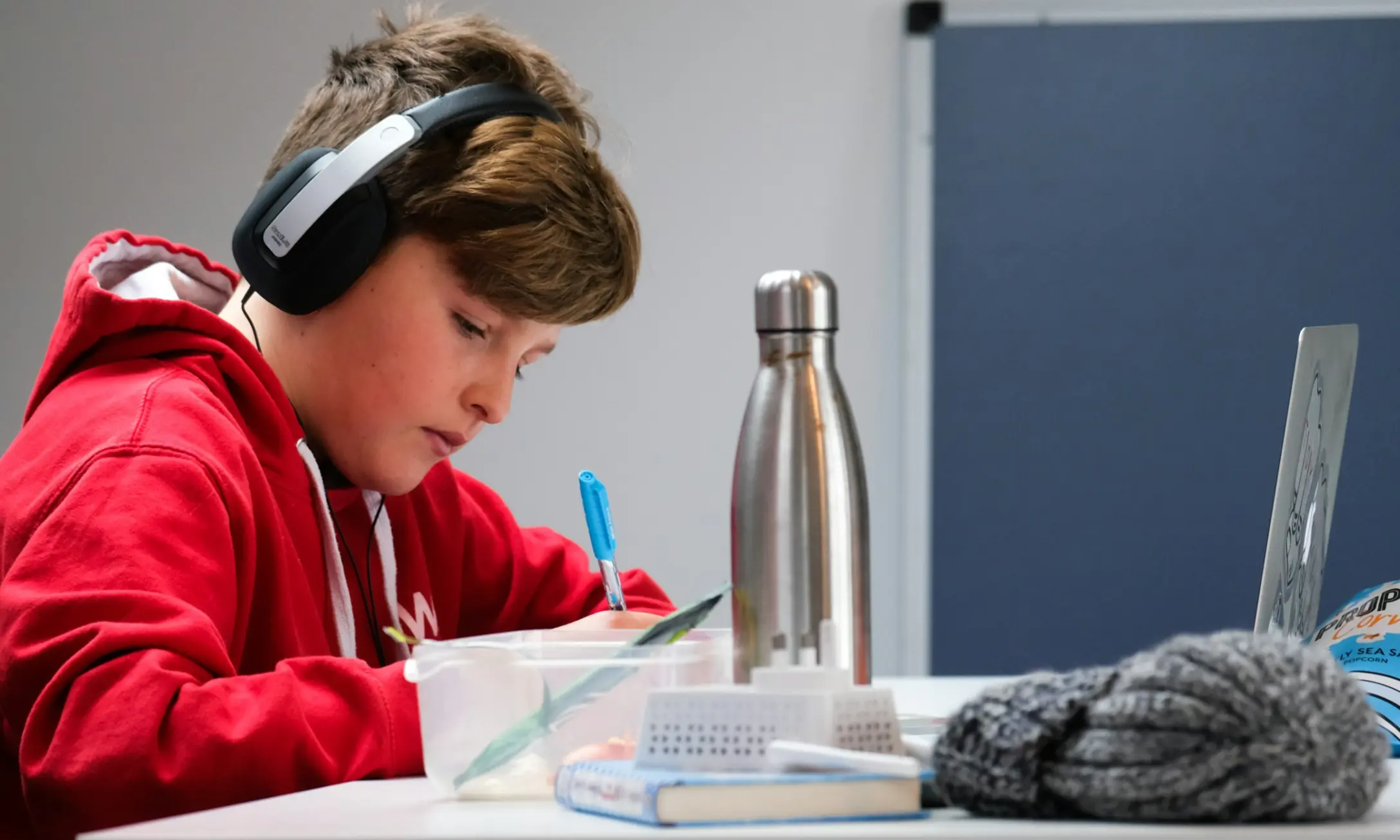
Are you worried about whether your child is getting the right support in school? Do you want to know more about EHCPs and how to get one? This course will explain the Education, Health and Care plan process from a parent's perspective and show you examples of what a good plan looks like. Dr Abigail Fisher, educational psychologist will discuss how to approach common issues and challenges. She will offer some tips on how to get a useful plan, and how to look at a draft plan, drawing on her experience working with schools and parents.

In this mini-course, Dr Abigail Fisher, educational psychologist, delves into effective strategies for working hand-in-hand with school to support your child's unique needs. This course will give you insight into what's possible and help foster a positive and collaborative relationship with your child's school.

Are you a parent navigating the complexities of the Special Educational Needs (SEN) Tribunal process? Parents say it ranks as one of their most stressful life events. This course is designed specifically to guide parents through the challenging journey. Whether you're new to the process or seeking to deepen your understanding, this mini-course by Dr Abigail Fisher (Educational Psychologist) will equip you with the knowledge and confidence you need to advocate effectively for your child's educational needs.

Dr Abigail Fisher, Educational Psychologist, will help you navigate your child’s EHCP Annual Review with confidence. You’ve got the EHCP in place, but it’s only the start of the process. She describes what should happen and when, what the legal process is and what your rights are. She will share ideas about how to make the process as useful as possible, to help ensure your child is well supported and their needs are met.

EOTAS is a provision for students whose needs cannot be met within a traditional school setting, and is a bespoke, individualised education. In this course, Dr Abigail Fisher, educational psychologist, will help you understand the process, benefits, potential costs and unexpected challenges of EOTAS.

Are you wondering if your child is neurodivergent - but aren't sure what that actually means and what you should do about it? This course is the place to start. Understand what neurodiversity means, how it relates to other ways of understanding difference and get some ideas as to how to talk to your children about neurodiversity and help them to thrive.

Many neurodivergent teens are struggling to attend school, and lots of them become completely unable to attend. But what happens next? Teenagers often believe they must be at school to learn, and that their future is over. This isn't true. We don't talk much about education outside school, but it's happening all around us. In this new course, Naomi will give you some ideas to help your teenager re-engage with learning and see a life beyond school. This course focuses on the learning and educational journey, rather than mental health.
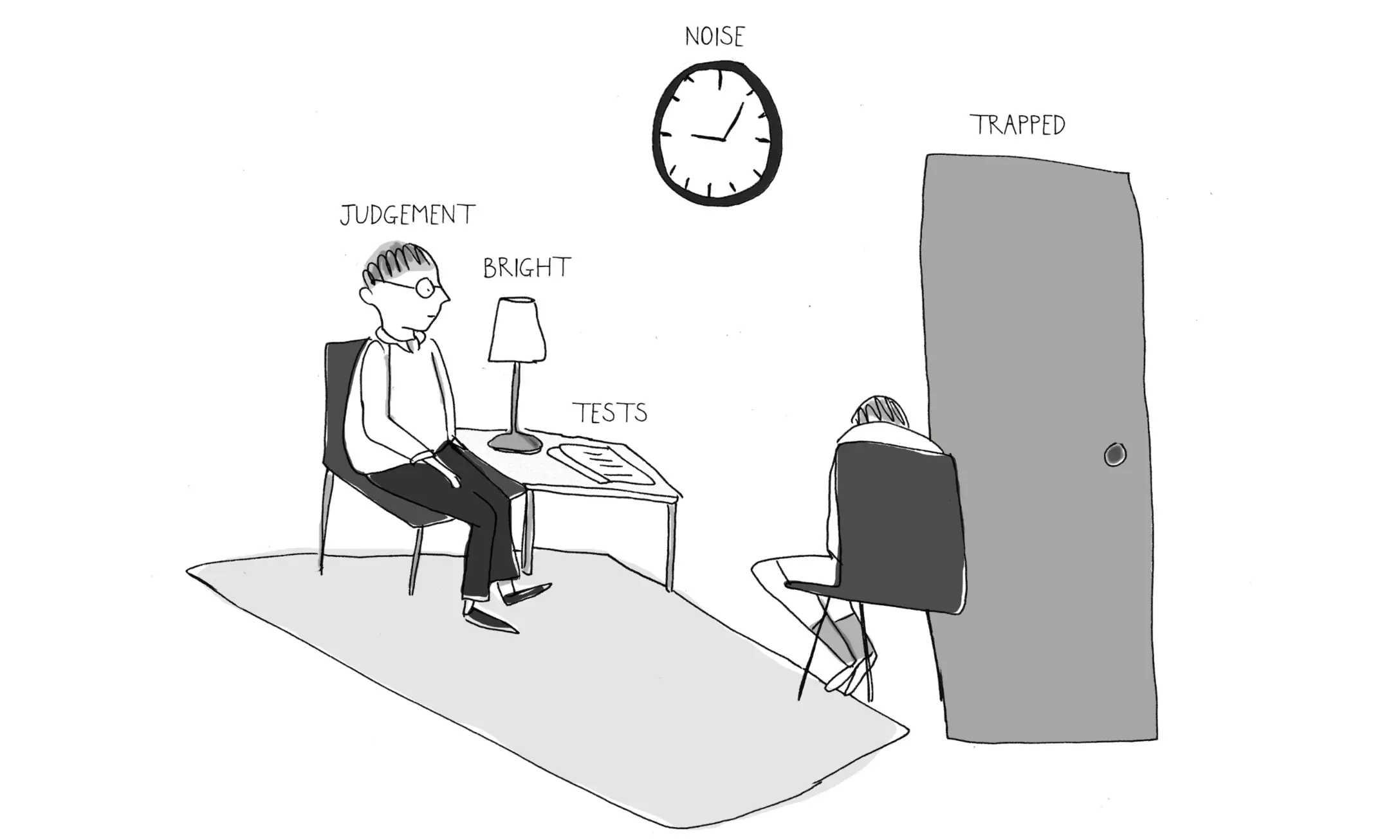
Demand avoidant children confound all of our expectations. You ask them to do something, and they react as if you’re shouting. You show them that you’re pleased with them, and they respond by saying they’ll never do that again. The harder you try, the more difficult things become. What’s going on, and how can therapists work effectively with demand avoidant children? In this engaging and illustrated mini-course you’ll gain an understanding of demand avoidance and what it is. You’ll learn some practical ways to engage these children. It is suitable for anyone working therapeutically with children and teenagers, including psychologists, child psychotherapists, occupational therapists, drama therapists, art therapists and speech and language therapists. It might also be of interest to school SENCos although it focuses on the one-to-one.
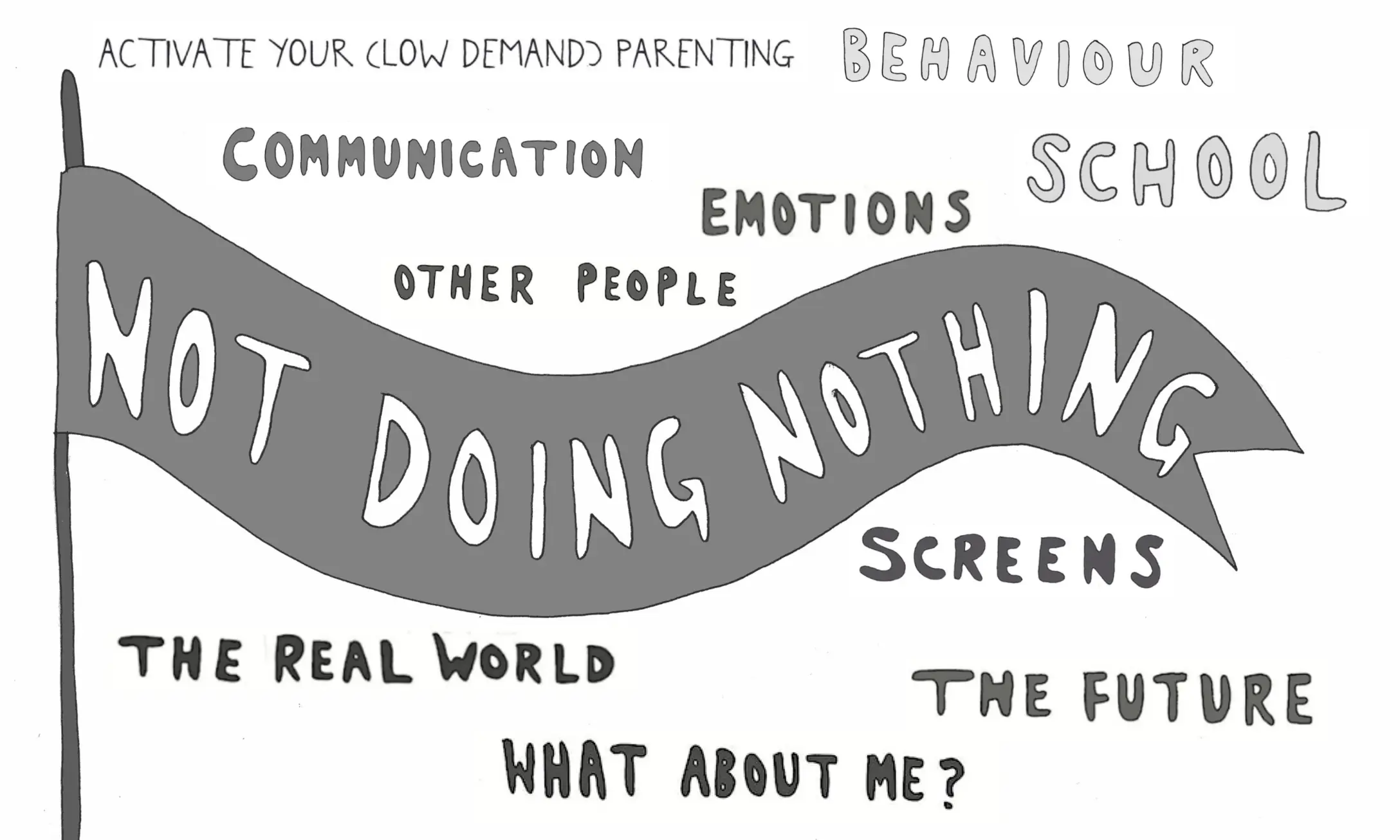
This bundle gives you all 10 webinar recordings from Activate Your Parenting through to What About Me? They are updated when new low demand parenting webinars are hosted. Recordings are available to watch for 12 months after purchase.
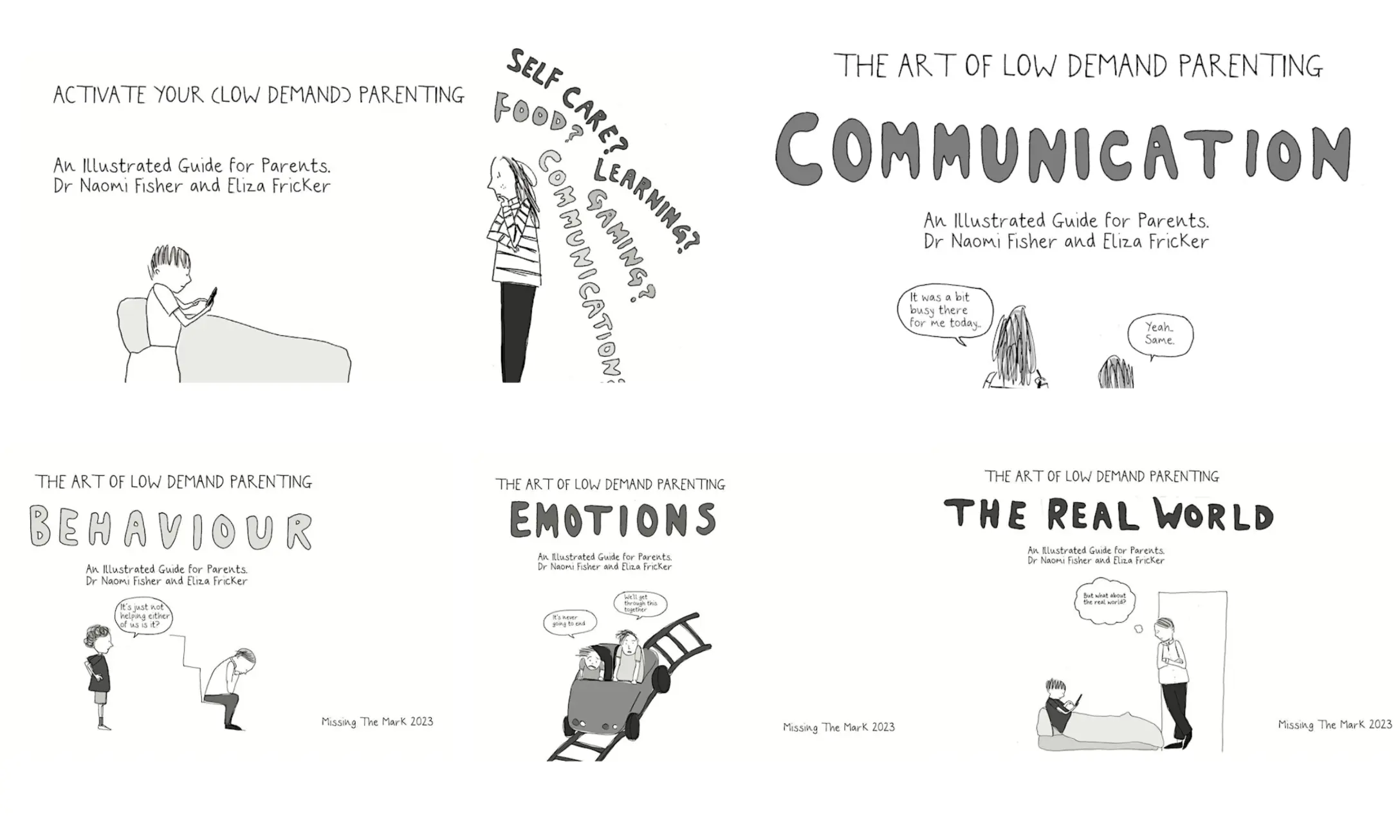
The bundle contains the following 5 webinar recordings: 1. Activate Your Parenting 2. Communication 3. Behaviour 4. Emotions 5. The Real World They are updated when new low demand parenting webinars are hosted. Recordings are available to watch for 12 months after purchase.
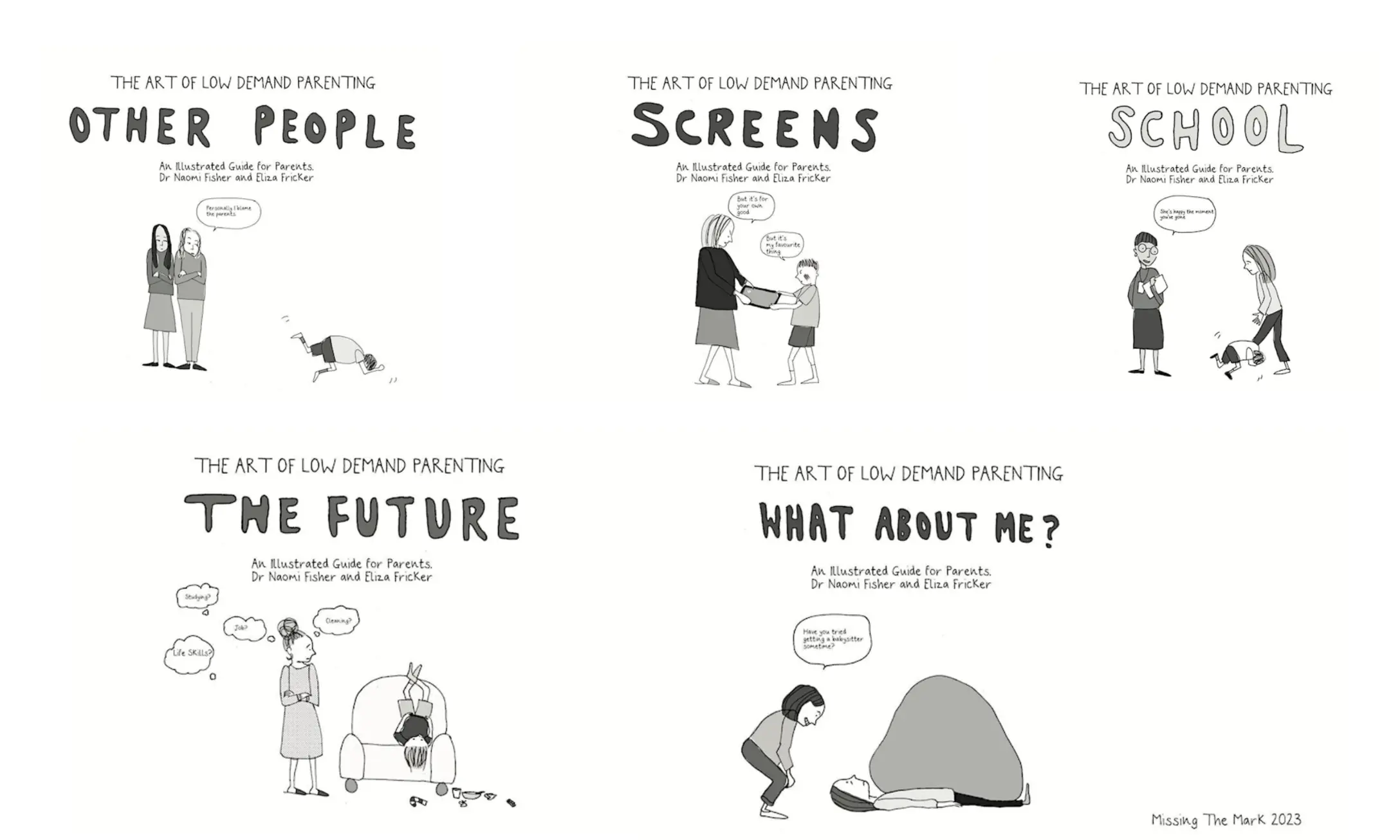
This bundle gives you the second 5 webinar recordings in the Low Demand Parenting series. It contains: 6. Other People 7. Screens 8. School 9. The Future 10. What About Me? They are updated when new low demand parenting webinars are hosted. Recordings are available to watch for 12 months after purchase.
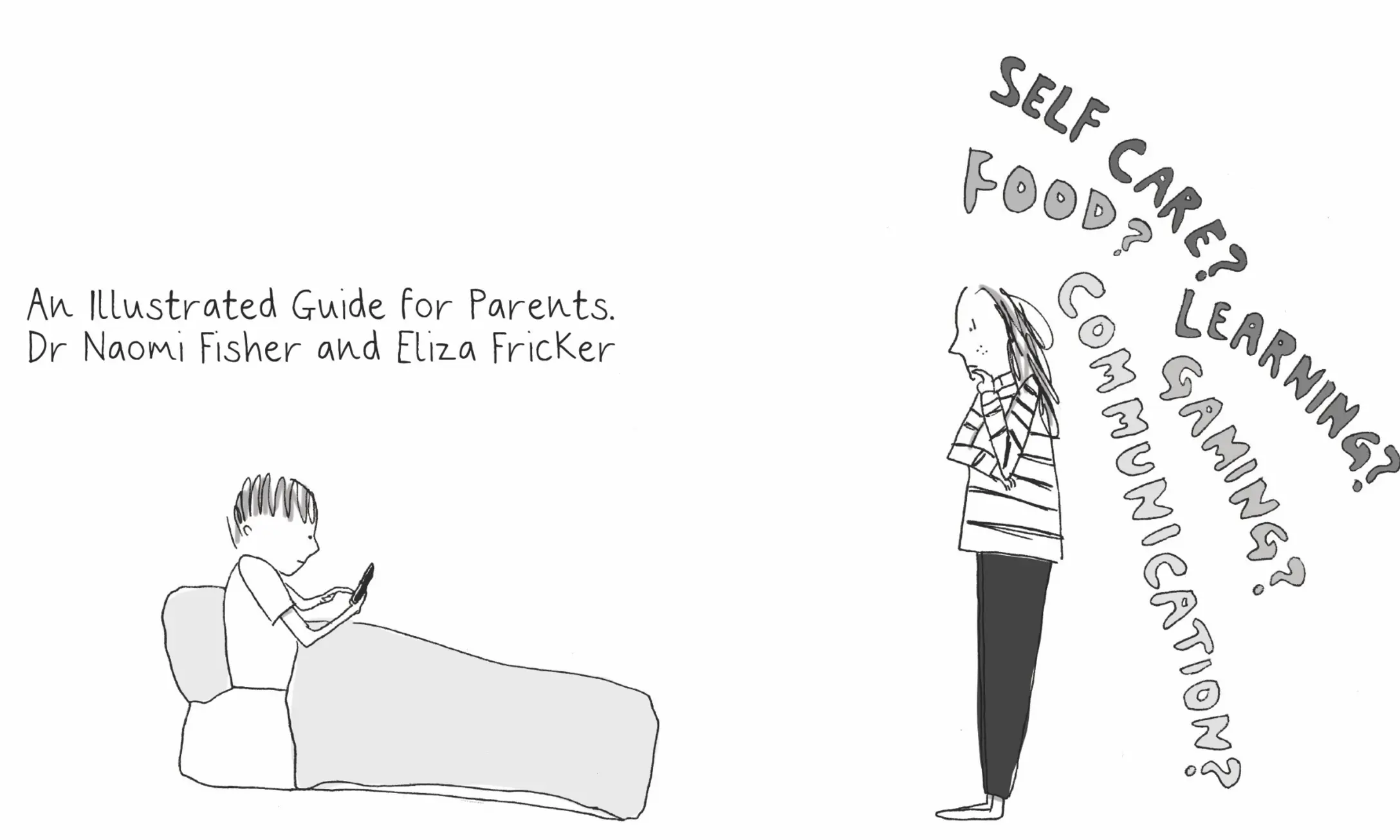
Updated with a new version in 2024, Dr Naomi Fisher and Eliza Fricker will show you how low demand parenting is anything but 'doing nothing' and help you see your way through to creating a happy family life. It will be reassuring, positive and free of blame or shame.

Updated for 2024! It's hard to be a parent when your child doesn't respond to mainstream techniques. We'll show you a different way in this new and updated webinar recording.
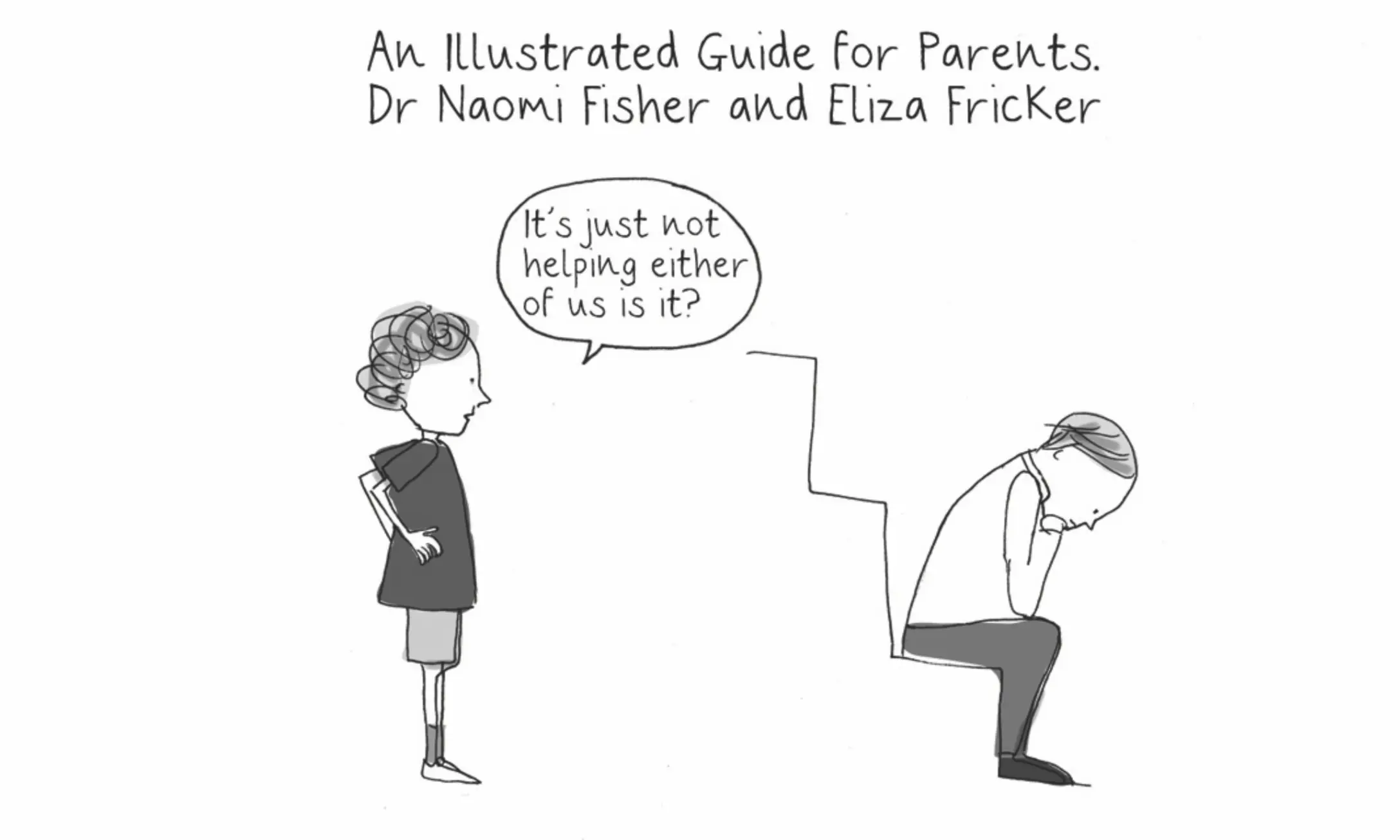
Updated for 2024! Some children just don't respond to conventional approaches to behaviour. What do you do when the naughty step makes things worse?
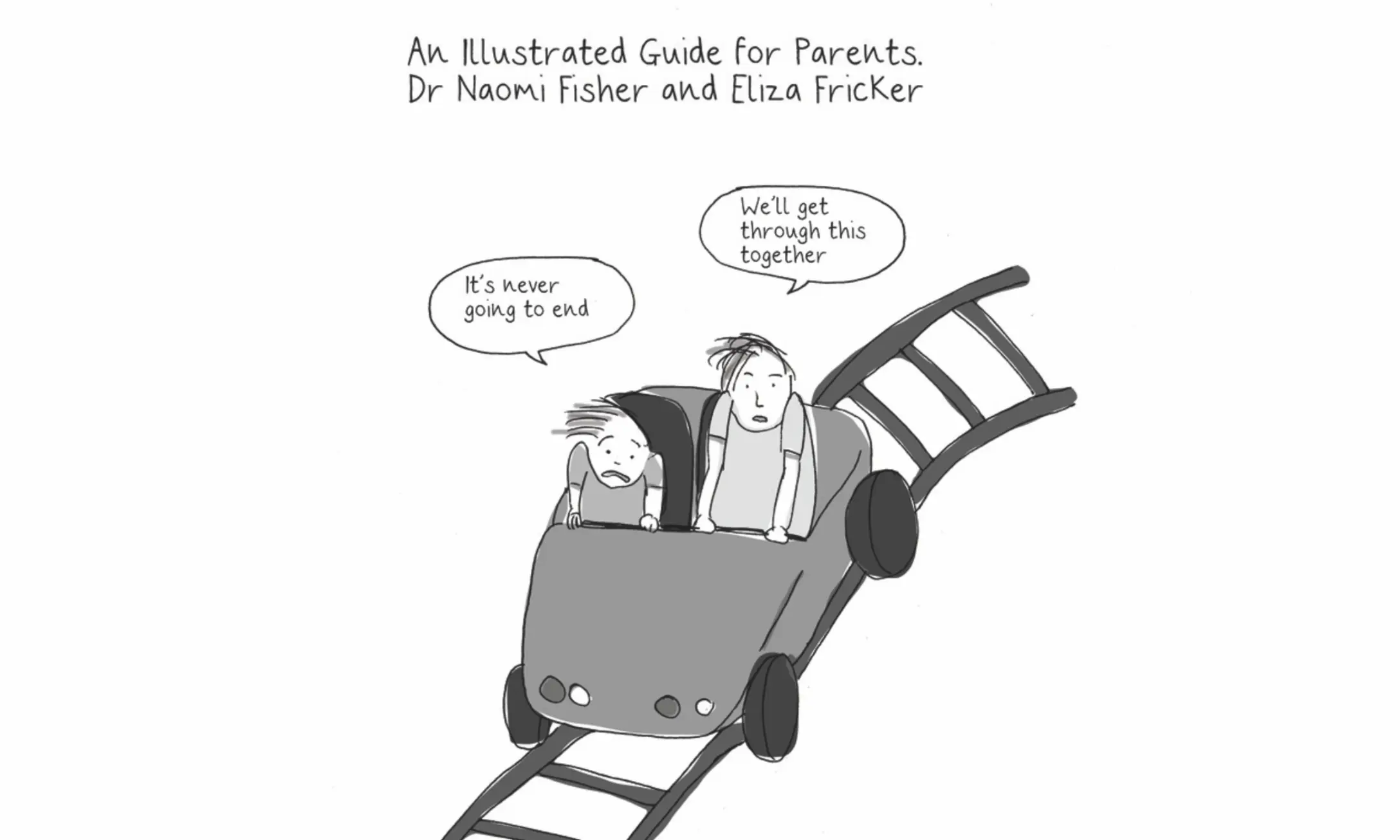
Updated for 2024! Some children are highly sensitive to emotions and pressure, and parenting them takes a whole new skillset. Dr Naomi Fisher and Eliza Fricker explain why many mainstream parenting approaches can make things worse and how to parent to help your child learn to manage their emotions.
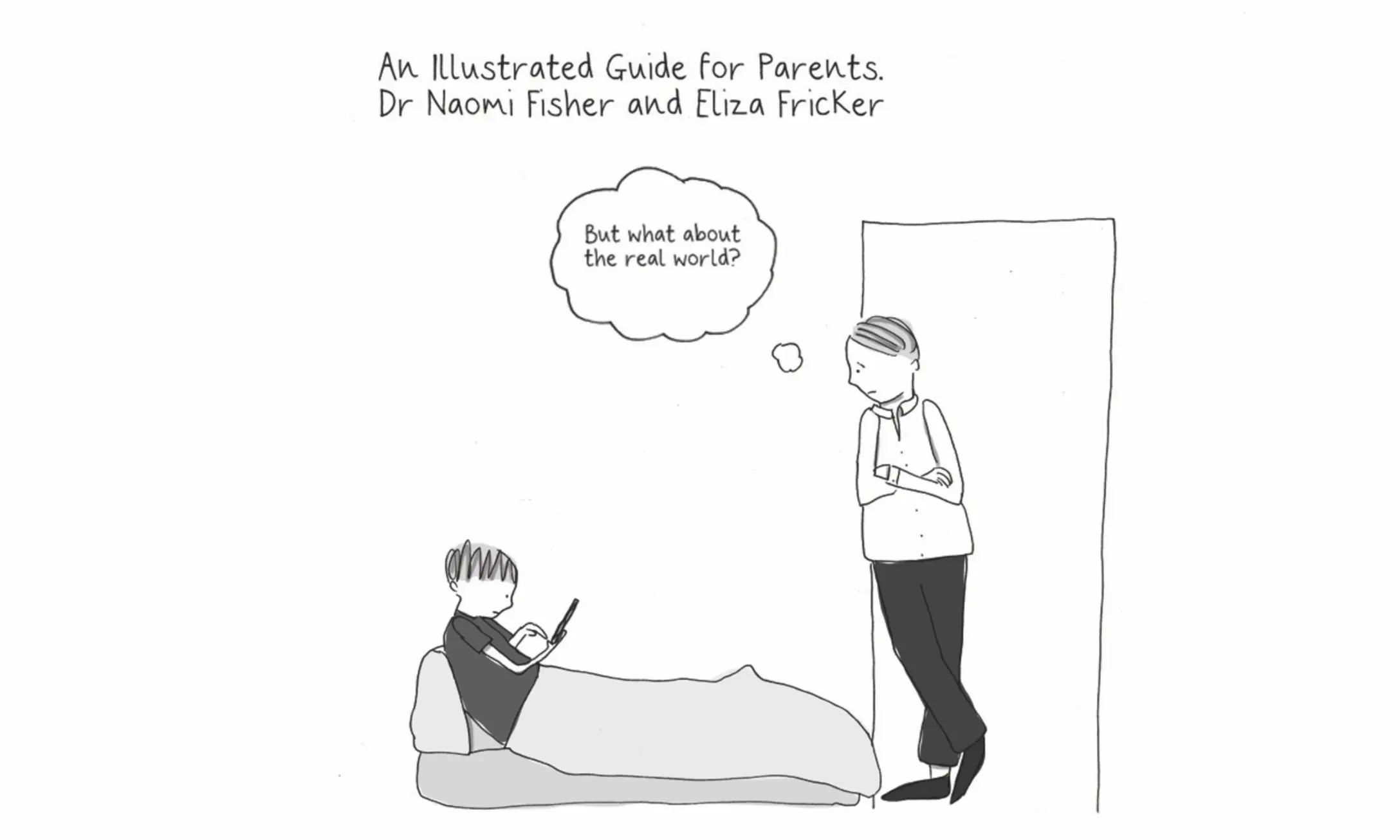
Updated for 2024! What do you do when mainstream parenting makes things worse - but you still need to live in the real world?
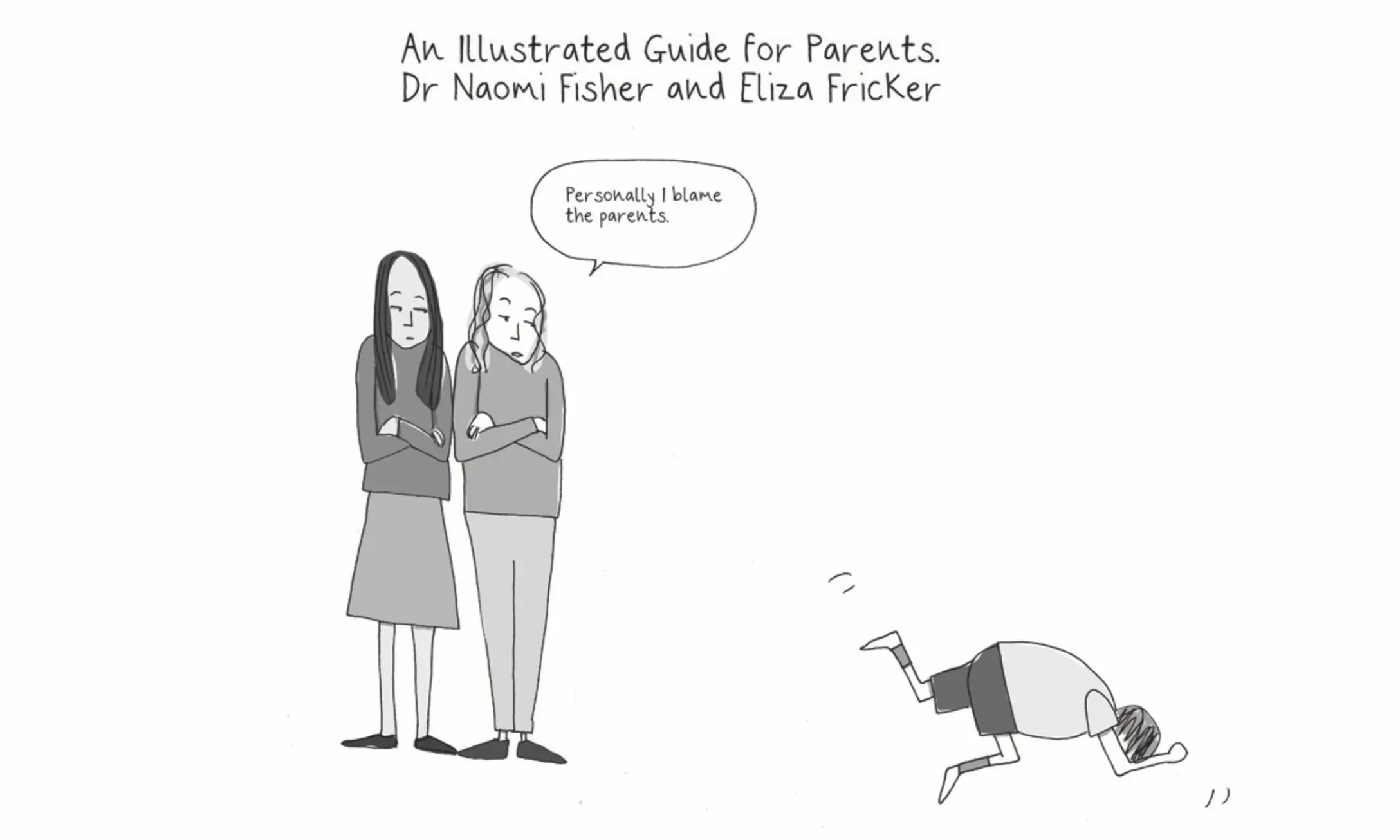
Dr Naomi Fisher and Eliza Fricker take on tutting in the supermarket, disapproval in the playground, and grandparents who can't see why you don't insist on Saying Please. And they'll discuss what happens when parents disagree about the right approach, or when professionals get involved.
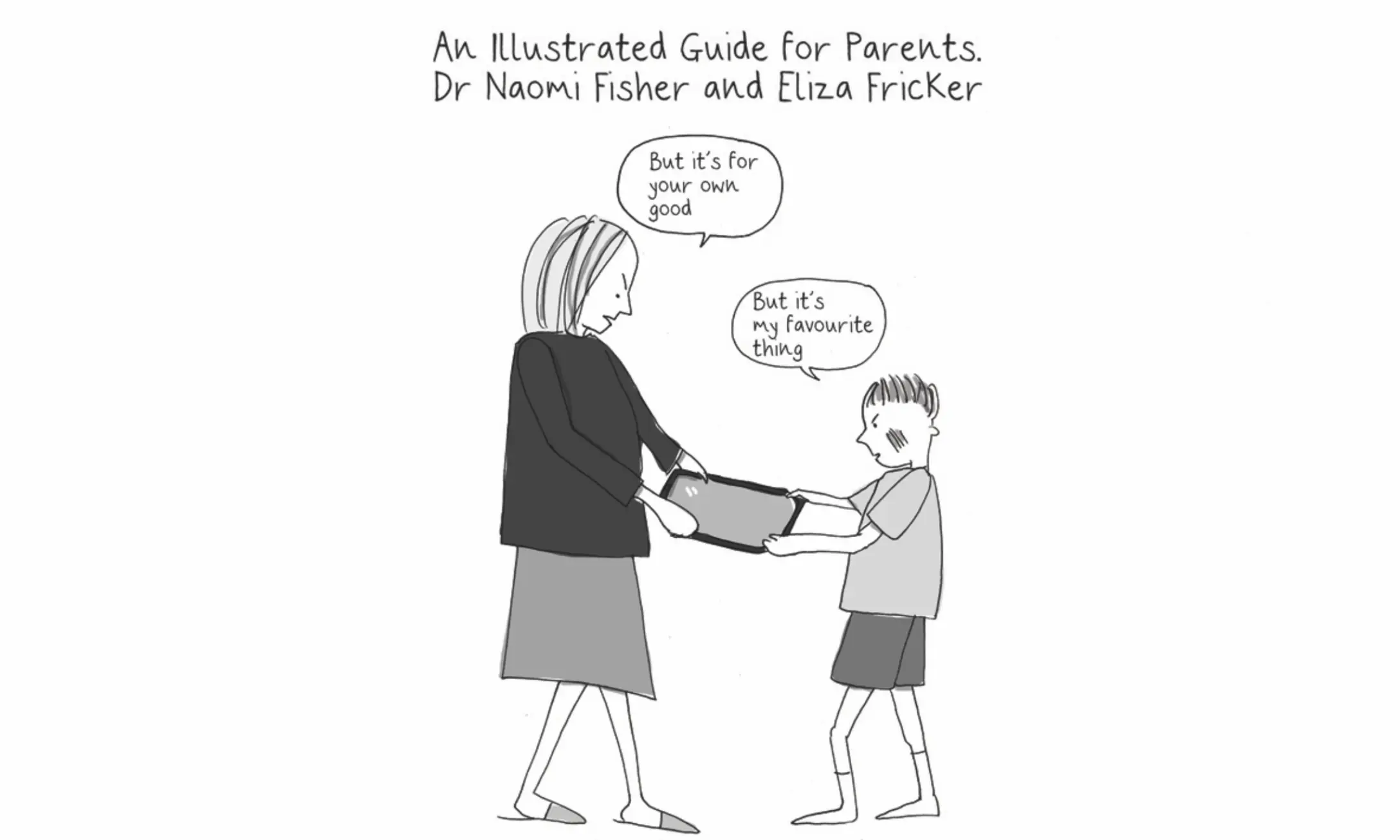
Updated for 2024! How do you manage screen time, when your child doesn't play by the parenting rules?
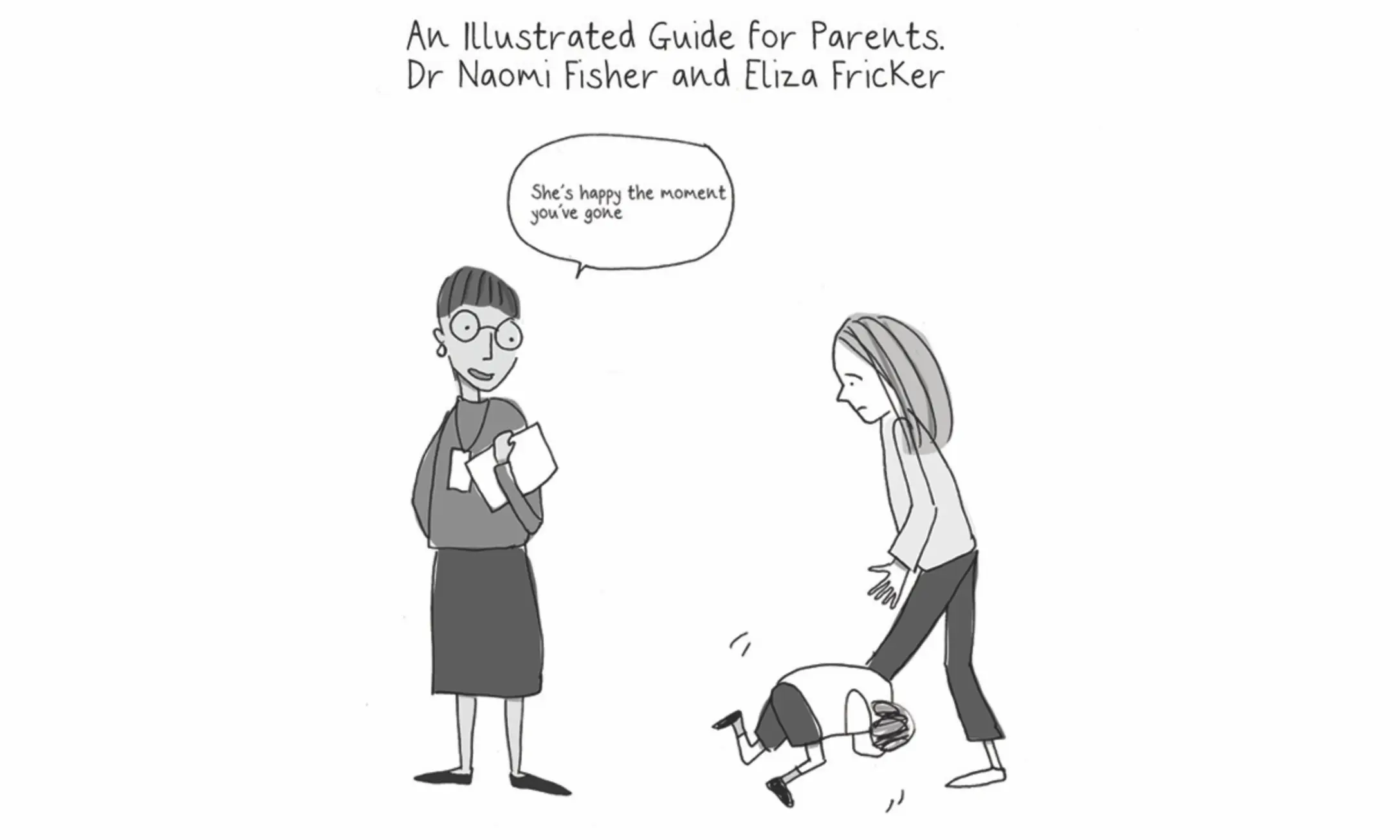
How can you be low demand parents, whilst your child goes to school? What can you do to take the pressure off and give them the space to thrive? That's what we'll be discussing in this new webinar.
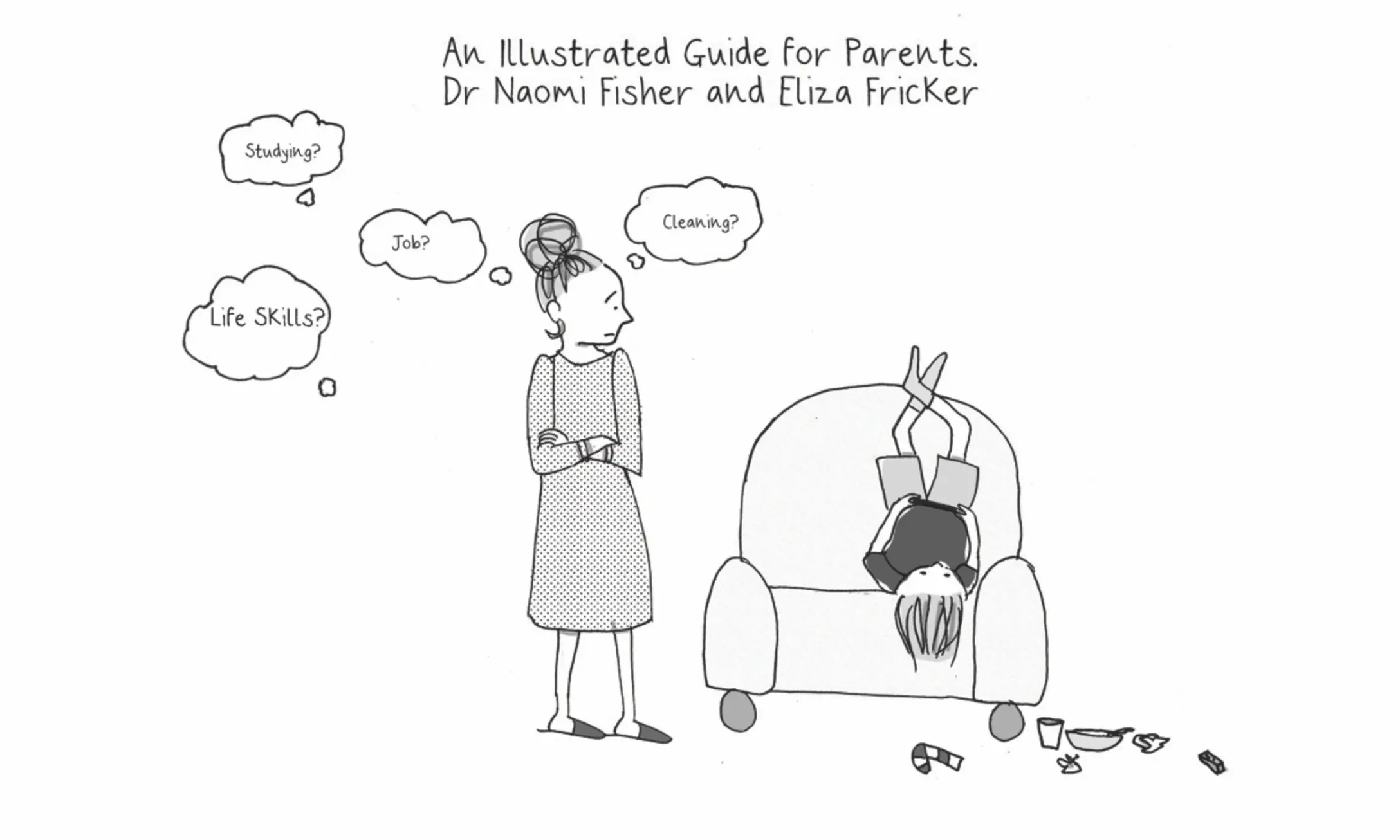
Some children are pressure-sensitive. They react to traditional parenting methods in unexpected ways. The more their parents try to set firm boundaries or implement reward systems, the worse things get.
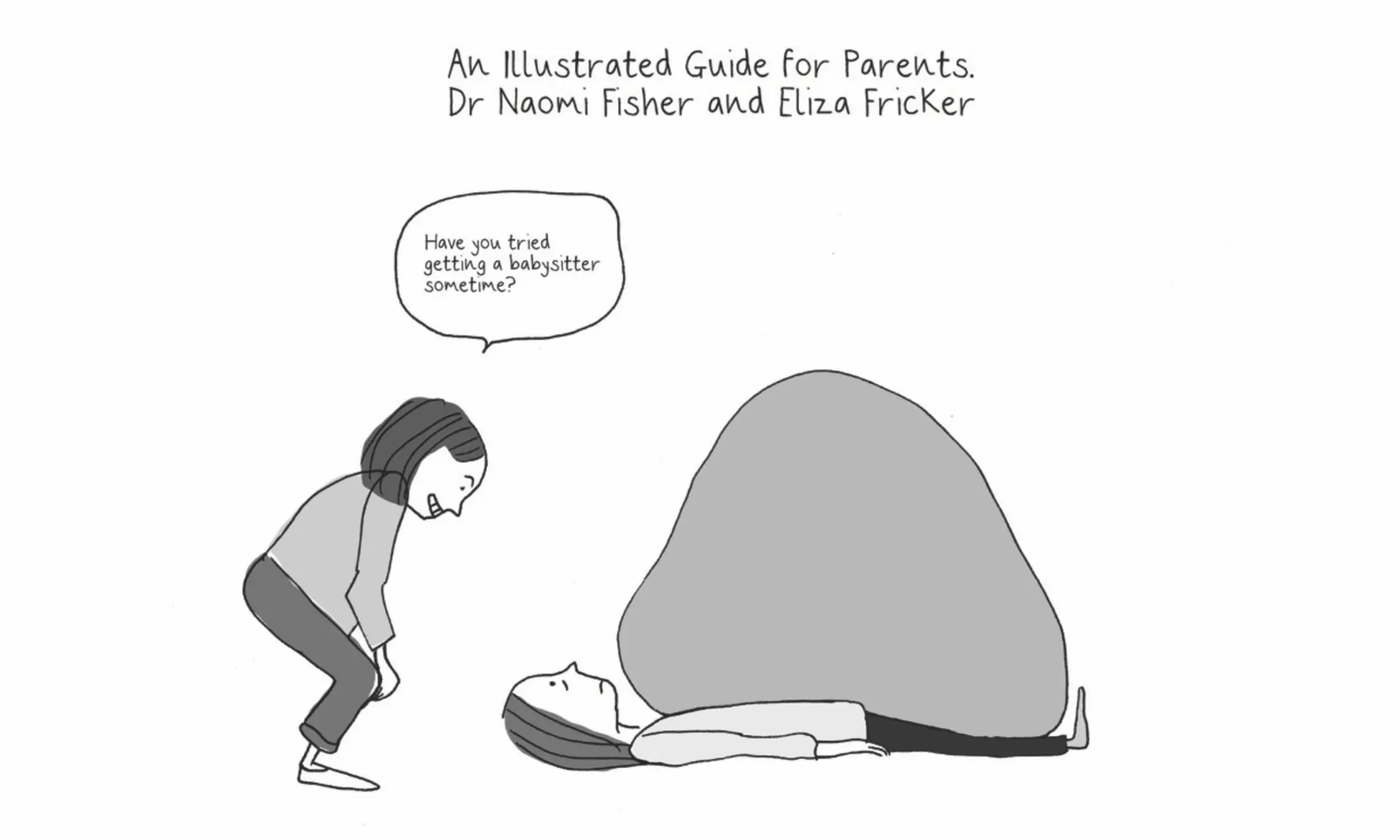
How can you make space for yourself, whilst also doing the best you can for your children? How can you make sure your own needs matter, when your child's needs are so high that they can't be put aside? Is it even possible for life to feel more sustainable?